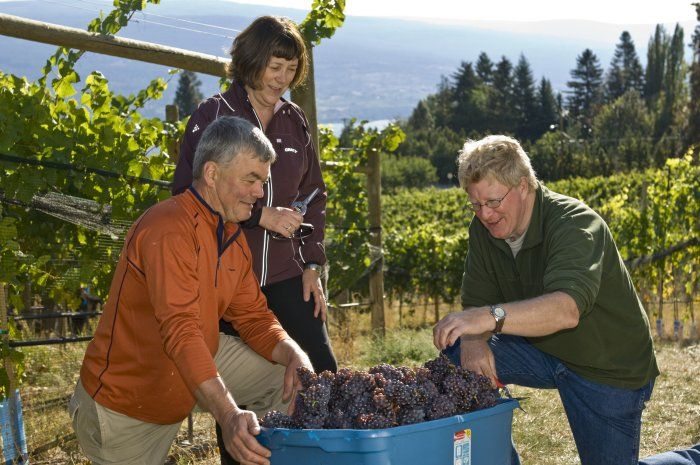One way government can help, not hinder, the BC wine industry

Legislation to allow interprovincial shipping of Canadian wine came to a screeching halt this week thanks to an NDP filibuster in Parliament. Despite widespread optimism in the wine community, there is nothing remotely simple about a request that would allow Canadians to transport wine across provincial borders. Highly convoluted tax laws, liquor monopolies, international trade agreements and special interest groups are all conspiring to leave things exactly the way they are: highly regulated and highly taxed.
If there is a bright side to what is a dark story, it is the will of local wine producers to forge ahead even while government officials constrained their ability to sell wine to all Canadians.
He describes a meeting with a Summerland, BC viticulturalist and grower Theo Siemens (Switchback Vineyards) and the latter's enterprising approach to pest control. In other words, the industry has plenty of initiative, so how can we support it?
There may be some (import vintners) who would argue that government has done more than enough for local wine producers and they wouldn't be wrong, but any helping hand given to the B.C. wine industry in its formative years has been duplicated many times over in the rest of the wine world. That said, it's time government gets out of the way and passes Bill C-311 – and producers need to find a way to cooperate and get on with the next steps required to make the Okanagan a unique place to grow grapes, one with a sense of place and identity.
If politicians feel the need to stick their untrained noses into the wine business, let it be for research and development. A well-funded, high-level school of viticulture and winemaking would be widely welcomed. There is so much to be learned and passed on to future growers, encouraging everyone to preserve the vineyards of British Columbia and maintain the ecosystem that will let us express to the world a different story about our wines.
Training in growing and winemaking is happening to a small extent in the Okanagan, but certainly for the long term success of the industry there must be first rate educational opportunities and research. Gismondi is correct to argue for it. Let's see if our governments will take his advice.
– post by Mike

